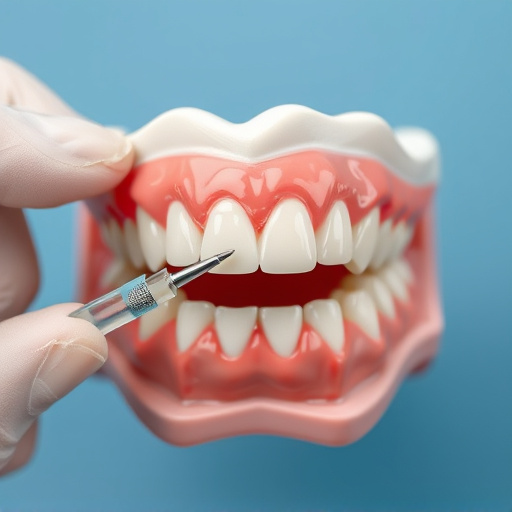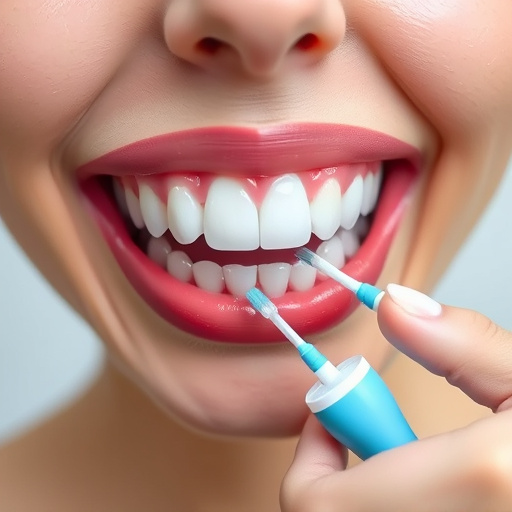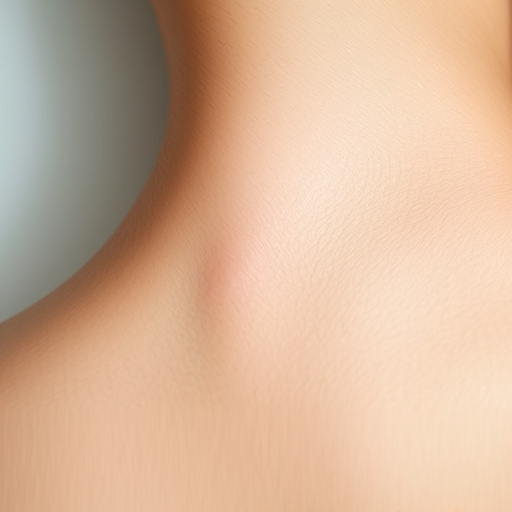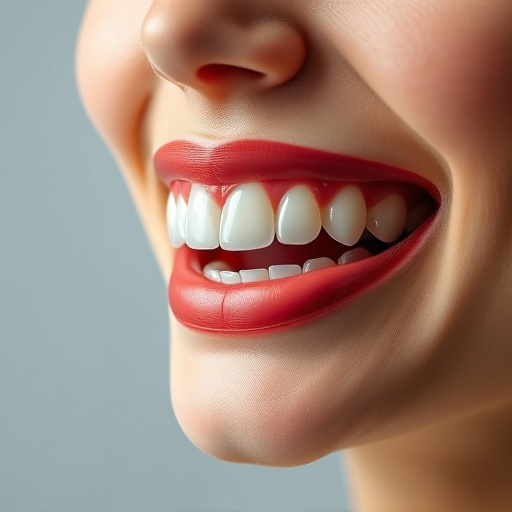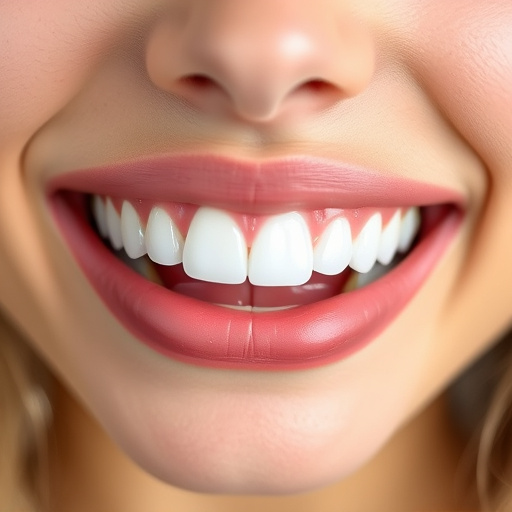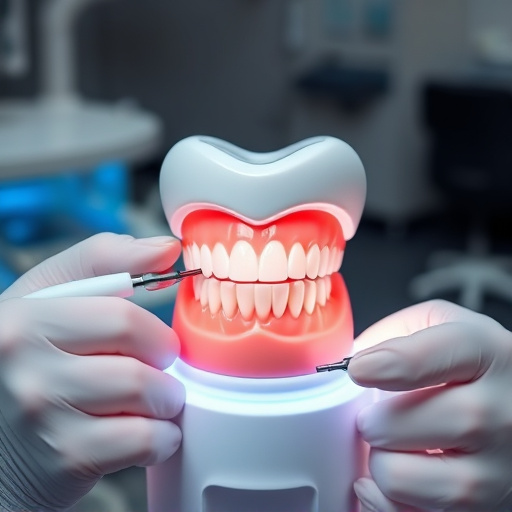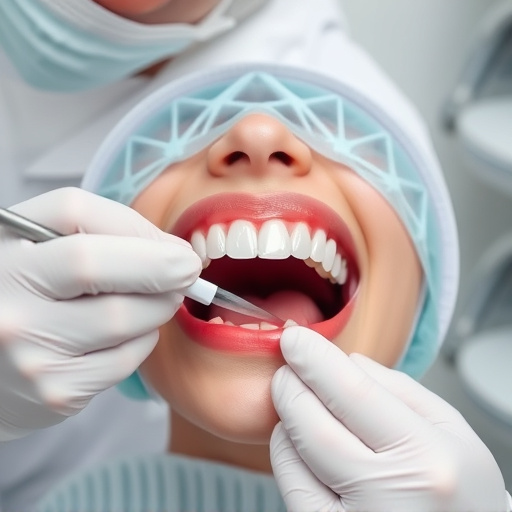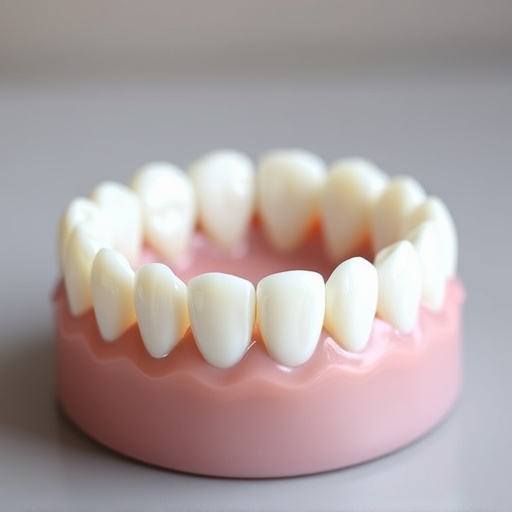Tooth sensitivity caused by exposed dentin due to enamel wear leads to pain from hot/cold stimuli. Diagnosis involves dental exam and tests. Treatment options range from preventive measures like desensitizing toothpastes and soft brushes to restorative procedures like fillings or implants, depending on severity. For mild cases, professional cleanings, desensitizing toothpastes, and routine care offer relief; more severe cases may require advanced therapies like sealants, dental crowns, or root canals. Modern dentistry provides cutting-edge treatments for effective management, enhancing oral health and quality of life.
Tooth sensitivity can range from a mild, jarring sensation to a severe, debilitating pain. This article explores comprehensive tooth sensitivity treatment options, catering to mild to severe cases. We begin by demystifying the condition, delving into its causes and diagnosis. For milder instances, we present accessible treatments. Advanced therapies are then detailed for more intense sensitivity, offering lasting relief. Discover how these solutions can transform your dental experience, ensuring a smile that’s both healthy and comfortable.
- Understanding Tooth Sensitivity: Causes and Diagnosis
- Exploring Treatment Options for Mild Cases
- Advanced Therapies for Severe Tooth Sensitivity Relief
Understanding Tooth Sensitivity: Causes and Diagnosis
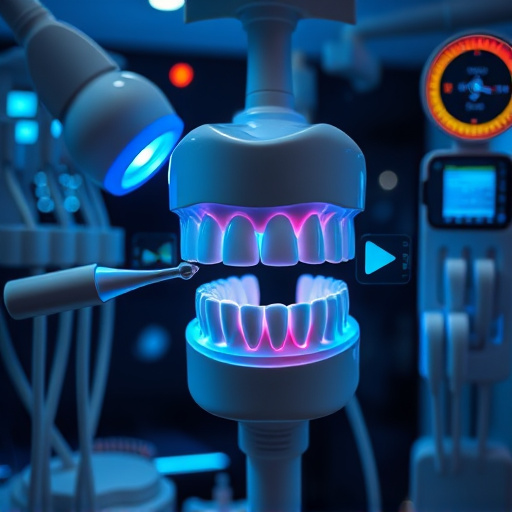
Tooth sensitivity, or dentin hypersensitivity, is a common dental issue characterized by short bursts of sharp pain in response to specific stimuli like hot or cold foods and beverages, sweet treats, or even cold air. It occurs when the tooth’s enamel, which protects the dentin (the sensitive layer beneath), wears down or becomes damaged, exposing these underlying nerves. The severity of tooth sensitivity can vary greatly, from mild discomfort after eating cold foods to excruciating pain that disrupts daily life.
Diagnosing tooth sensitivity involves a comprehensive oral examination by your dentist. They may use specialized tools to test the responsiveness of specific teeth and identify the source of the sensitivity. Proper diagnosis is crucial as it helps determine the best course of action for tooth sensitivity treatment, which can range from preventive dentistry measures like switching to soft-bristled toothbrushes and using desensitizing toothpastes, to more intensive restorative dentistry procedures such as dental implants or fillings, depending on the severity of the case.
Exploring Treatment Options for Mild Cases
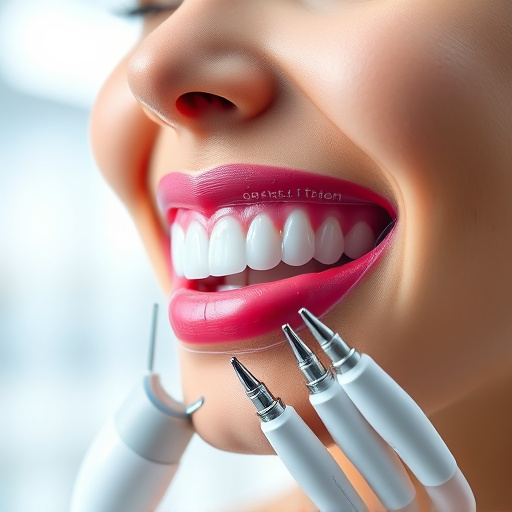
For those experiencing mild tooth sensitivity, a range of treatments are available to provide relief and prevent further discomfort. One of the most common and effective approaches is regular dental cleanings. Professional cleanings by a dentist can thoroughly remove plaque buildup and tartar near the gumline, which is a primary cause of sensitive teeth. This simple yet powerful procedure helps reduce inflammation and prevents the worsening of sensitivity.
Additionally, certain at-home practices can complement these treatments. Using desensitizing toothpastes containing ingredients like nitrate or potassium nitrate can help block nerve pathways, alleviating sensitivity over time. While more severe cases might require procedures such as dental fillings or root canals, for milder instances, exploring these gentle yet effective tooth sensitivity treatment options can be a great starting point, often in conjunction with routine dental care, including regular check-ups and children’s dentistry for proactive oral health management.
Advanced Therapies for Severe Tooth Sensitivity Relief
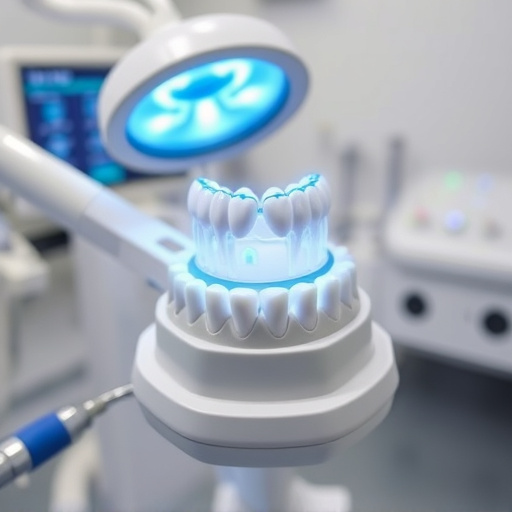
For those experiencing severe tooth sensitivity, modern dentistry offers advanced therapies designed to provide lasting relief. One such innovative approach involves the use of specialized coatings and sealants that can effectively block the tiny tubes (dentinal tubules) within your teeth, preventing irritants from reaching the nerve. These treatments are particularly beneficial for individuals with severe sensitivity that hasn’t responded to more conventional methods.
Additionally, dental professionals may recommend restorative dentistry procedures such as dental crowns to strengthen weakened or damaged teeth, thereby reducing sensitivity. Family dentistry practices often incorporate these advanced therapies into their care plans, offering comprehensive solutions tailored to the unique needs of each patient. By combining cutting-edge treatments with personalized care, modern family dentistry ensures that even severe tooth sensitivity can be effectively managed, improving overall oral health and quality of life.
Tooth sensitivity can significantly impact one’s quality of life, but there are various effective treatment options available. Whether it’s mild or severe, understanding and addressing the root cause is key. For mild cases, over-the-counter products and lifestyle changes can provide relief. More advanced therapies exist for severe sensitivity, offering long-lasting solutions. Exploring these treatments, from desensitizing toothpastes to in-office procedures, empowers individuals to reclaim their confidence and comfort when enjoying favorite foods and beverages. Remember, seeking professional advice is crucial in finding the best tooth sensitivity treatment tailored to your needs.
